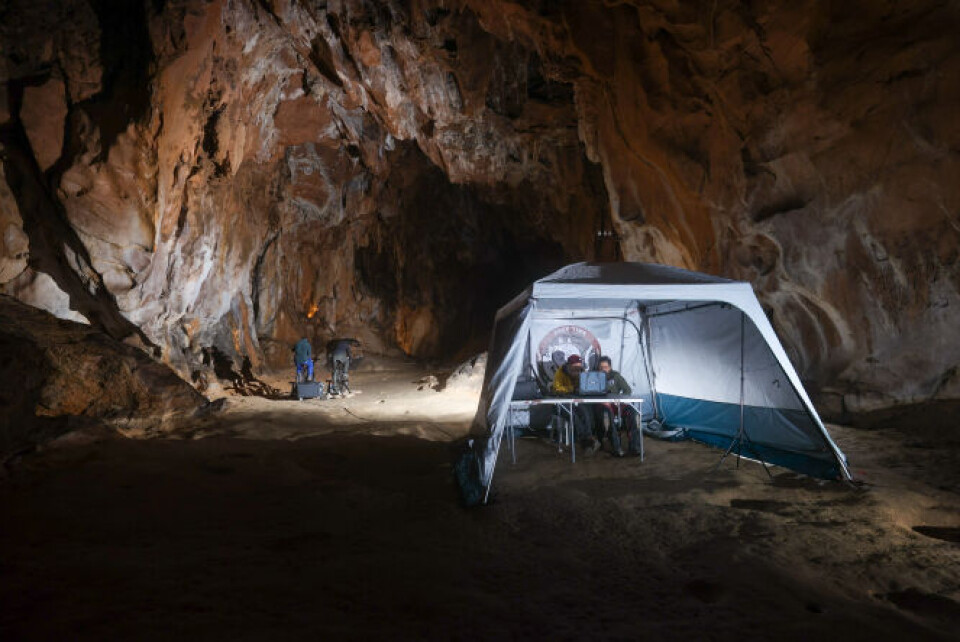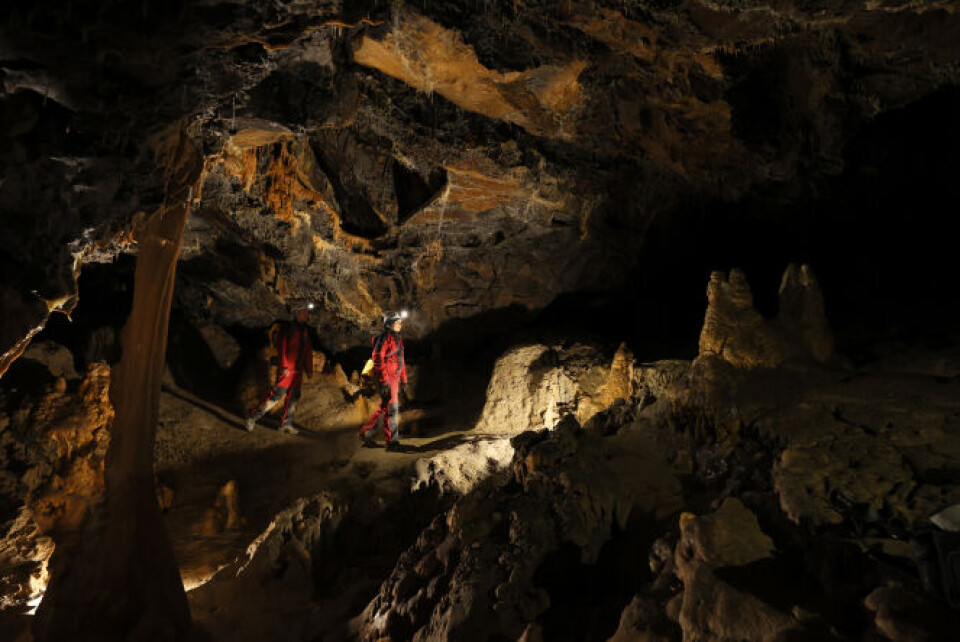-
French astronaut Sophie Adenot makes history as she blasts off on space station mission
Pupils in 4,500 schools set to copy her science experiments to compare results on Earth and in space
-
Photos: where to go star-gazing in south-west France
Natural park one of seven prestigious ‘dark sky’ areas in the country
-
Reaction to François Hollande's call for France to create refugee status for US researchers
Former president lends support to scheme for scientists reportedly 'forced into exile' by the Trump administration
15 leave French cave after 40-day experiment without light or clocks
The team spent more than a month in isolation as part of a wide-ranging study into human behaviour
The coordinator of a human-behaviour study that saw 15 people spend one month isolated in a cave in southwest France has said he hopes to be able to repeat the study.
The group of seven women and eight men aged between 27 and 50 entered the cave system at Lombrives, Ariège, on March 14 and came out on April 24.
Franco-Swiss researcher Christian Clot led the Deep Time experiment, which aimed to understand how the brain adapted to there being no notion of time, how people’s internal rhythms synchronised while living without time in a confined space and how leadership and coordination occurred in the group, among other elements.
He told Connexion, “on the whole, everyone managed the experiment very well.”
He said there were few personal conflicts because of the diversity of the team, which was intentionally made up of people from different social backgrounds.
The group included a communications manager, a jeweller, a rope access technician, an analyst, a teacher and a biologist, among others.
“When everyone thinks the same way, sometimes it is hard to see a solution because no one has new ideas.
“With these varied people, every time there was a problem, someone had a solution or a proposal to solve it.”
He said experts had thousands of pieces of data to analyse and that it could take until the summer to go through it all.
“We are trying to go as fast as possible because we feel that there is some urgency to understand this research to help society today, in terms of living in confinement in groups, especially with the challenge of Covid-19.”
The hope for the project is that the data gathered in the study may be useful for future human planetary exploration missions, when it would be essential to understand the physical and psychological effects of long-term isolation.
One interesting element that Mr Clot noted is that the majority of the team felt that they were exiting the cave after 30 days, when in fact it had been 40.
Mr Clot said he did not expect that gap between perception and reality to be so big. It would be interesting to find out what caused it, he said, and how each of the participants’ sleep cycles differed.
He was also interested to note that the need for collaboration in a group seemed to trump biological needs.
“We expected the biological rhythm would take over from other rhythms while living without a watch or clock: We would sleep when tired or eat when hungry and everyone would follow their own personal rhythm. But it was more complicated than that.
“We noticed that, after around 20 days, or cycles, a sort of collective synchronicity formed, because there was a need to collaborate on certain tasks that we were doing in the cave.
“The question of will, more than biology, ended up meaning that the group synced up.
“So even though we all have individual biological needs and rhythms dictated by fundamental needs, the brain appears to have the capacity to overwrite these basic needs when it is necessary, for example for the benefit of group work.”
He said he also noted the importance of roles and responsibilities within the team.
At the beginning of the experiment global goals were in place but no one was in charge of making sure they were achieved. Mr Clot said that, after an initial burst of enthusiasm for the project, a type of apathy set in.

“A task was assigned and it took two, three, sometimes four days for it to be accomplished. There was a block,” he said.
After around 17 cycles, he reorganised the system and gave people specific responsibilities to complete six tasks that ranged from cleaning the caves to documenting wildlife there, to photographing ancient cave inscriptions.
“All of a sudden there was a change,” he said.
“Everyone started to work together, collaborate and things became easy and efficient.
“If there is no common goal, a group will not function,” he said.

There were few problems or arguments during the 40 days. “I am proud and happy that the system that we put in place worked well. If there were any disputes they were never serious or went very far.”
Mr Clot said that the team successfully managed all six tasks they set out to achieve, except documenting the cave inscriptions. The caves have sheltered humans for thousands of years. Traces of Neolithic life have been found there.
Read more: First music from prehistoric French shell in 17,000 years
“We were actually a bit frustrated to have to leave the cave without having finished this,” Mr Clot said.
“Most of the team wanted to stay. Just one person declared really wanting to leave.”
“I want to do it again. I think there is still a lot to learn about human society and living together in groups.
“We have other similar projects, in tropical environments, or in desserts or in polar conditions.
“But I think a similar study in a cave should be done. I haven’t thought about it too much because I have only been out for two days. I need a bit of a break. But I really want to try this experiment again, And why not in the same cave because it is ideal for it.”
He said that spending 40 days isolated in a cave was not bad because they created a nice living environment.
“Very sincerely, I didn’t miss much from the outside world while in the cave. We set up a system that was really comfortable.
“During the whole experiment I did not think about what I missed. It’s funny, because I spoke with the other members of the team after getting out and everyone had the same impression.

“During the study, we did not miss anything.
“But when we came out we realised that the grass, the smells, the blue sky...we had missed it.
“We were lucky to come out on a nice day and the sun was shining, the trees were green and there were a lot of flowers. It’s true that at that moment, it was a huge emotional shock.
“It showed us that we really missed that.”
Related articles
Meet the mountain rescuer who spent 30 years on the Pyrenees
























